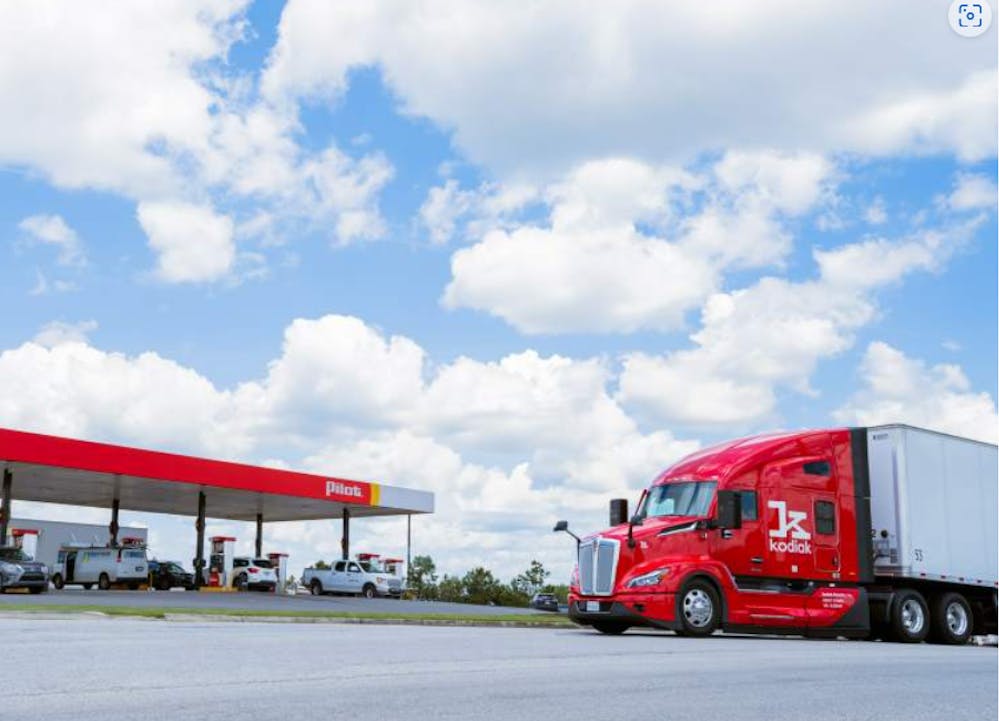Georgia attorney takes jab at autonomous trucking, questions safety
DALLAS — Georgia attorney Amy Witherite, founder of a law firm that specializes in vehicle accident cases, is concerned about the dangers of driverless vehicles on the road.
Witherite said her warning is in response to the recently-opened trucking facility in Villa Rica, Georgia, created to serve autonomous trucks driving the high-traveled Dallas-to-Atlanta corridor.
“We have already seen problems with both autonomous trucks as well as vehicles such as Tesla with an autopilot feature,” Witherite said. “The danger and severity of accidents will be multiplied a hundredfold when the accident involves a tractor-trailer versus a car.”
Those involved with the Georgia facility, including the Pilot Company, have assured that safety is their top concern.
“Pilot Company rigorously tests ways to integrate new technologies, including autonomous trucks, to maintain our safety-first focus and continue fueling the trucking industry,” said Brandon Trama, director of strategy and business development at Pilot Company. “Working with Kodiak aligns with our emphasis on improving the quality of life for professional drivers. Autonomous trucks focus on the long, repeatable highway miles, leaving the more enticing local, first- and last-mile deliveries for professional drivers who can stay closer to home.”
Witherite said she worries about recent reports of autonomous vehicles causing unnecessary risk to the public. The California Department of Motor Vehicles shut down its cruise autonomous taxis in the San Franciso area after being involved in several incidents and declared an “unreasonable risk to the public.”
Tesla has also recalled more than two million vehicles sold in the U.S. alone to update software and fix a defective system. “Individuals injured in a crash with an autonomous vehicle will face a much more difficult time determining who was at fault and will be responsible for deaths, serious injuries or property damage,” said Martin Futrell, an attorney with the Witherite Law Group. “The amount of finger-pointing between various parties will increase tenfold because of all the technology involved.”
Earlier last month, the Washington Post reported about vehicle crashes involving Telsa.
“The crash is one of at least eight fatal or serious wrecks involving Tesla Autopilot on roads where the driver assistance software could not reliably operate,” according to a Post analysis of two federal databases, legal records and other public documents. “The first crash occurred in 2016, when a Tesla plowed under a semi-truck on a U.S. route in Florida. The most recent was in March when a Tesla on Autopilot failed to slow down, police said, and hit a teenager stepping off a North Carolina school bus at 45 mph.”
Witherite said that anyone who has ever experienced the so-called “blue screen of death” on their computer understands that computers, which control autonomous vehicles, can fail.”
“Even something as simple as placing a sticker on a sign can confuse sensors, and there has been a high-profile case where a Tesla did not recognize a giant tractor-trailer truck crossing a highway, leading to a fatality,” she said. “Any litigation that arises from this type of accident will require a new level of expertise from attorneys and a wide range of experts in computers, software, sensors and all of the other technology that goes into creating an autonomous vehicle.”
Witherite added that it can be expected for defendants to claim their technology is proprietary or seek confidential settlements that will make it more difficult for plaintiffs to access key information needed to determine liability.
“We have already seen attempts in Congress to limit the amount of information that is available through binding confidential arbitration in these types of cases,” she said. “While it is clear that new technology has made driving safe, there is also clear evidence this technology has not been perfected to the point where it is safe to operate autonomous vehicles, especially tractor-trailers at high speeds within a few feet of other vehicles, and innocent drivers and passengers may well pay the price.”

